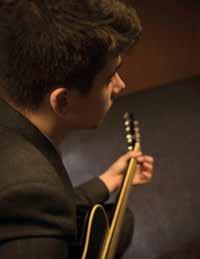
1 minute read
Physical Education
2021-2023 Specification: Head of Department: AQA A Level Physical Education 7582 Mr Dan Bradley (from January 2021)
Who should study this course?
Advertisement
Do you enjoy performing, coaching, officiating or watching sport? Equally, are you intrigued by the opportunities that a career in sport could offer? If so, then an A Level in Physical Education is a good place to start.
Entry requirements?
Pupils looking to take A Level PE should have obtained a minimum of a grade 7 in their GCSE PE course, and a 6 in science (specifically biology) with suitability largely based upon the GCSE theory exam score rather than practical ability. Those wishing to study the subject must be prepared to engage in a great degree of theoretical work.
What will I be studying?
This course will allow pupils who enjoy sport to develop their knowledge and understanding of the various complexities involved in improving sport performance. Pupils will learn about concepts relating to anatomy, exercise physiology, skill acquisition, psychology and sociology in sport. The course content has a 70:30 split between theory and practical work, which is reflected in the assessments detailed below.
Whilst there is a challenging practical element to the course, the testing academic content requires the pupil to complete a significant amount of independent research and study.
How will I be assessed?
Students will be assessed in the following topics:
Factors affecting participation in sport (examination) Factors affecting performance in sport (examination) Practical and written analysis and performance (non-examination assessment)
What next?
A strong performance in A Level physical education will allow the pupil to credibly apply for a wide range of sport-related courses at leading institutions such as Exeter, Birmingham, Loughborough, Bath and Leeds. People taking these courses often move on to physiotherapy, teaching, coaching, analysis, management, marketing or personal training.









